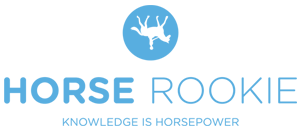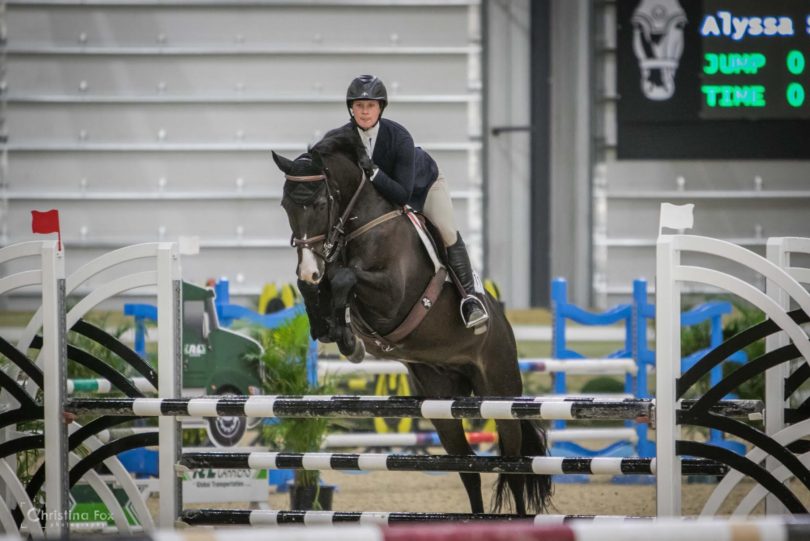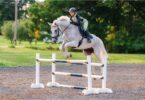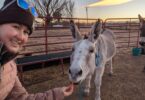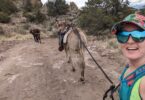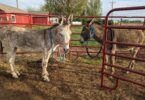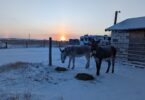College Team: University of Findlay Equestrian Team (Learn More)
State: Ohio
Year in College: Senior
Joined Team: 2015 (Freshman Year)
Riding Discipline(s): Hunter/Jumper // Equitation
About Alyssa: I’m from Ramsey, New Jersey and am a senior at the University of Findlay. I’m majoring in English Equestrian Studies, Business Management and completing a minor in Psychology, as well. I love everything about horses, but outside of that I really love going to the beach and swimming in the ocean.
Collegiate Equestrian Interview
Q: What was your pre-college horse experience?
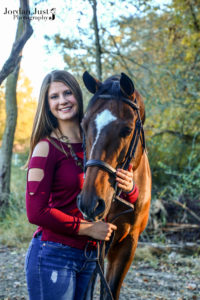 I come from a family that knows nothing about horses. Luckily, I got into equestrian sports when I was six and my grandparents took me to my first riding lesson. They were sick of me acting like a wild mustang at home and thought that if I rode a horse once that it would be out of my system. Boy, were they wrong!
I come from a family that knows nothing about horses. Luckily, I got into equestrian sports when I was six and my grandparents took me to my first riding lesson. They were sick of me acting like a wild mustang at home and thought that if I rode a horse once that it would be out of my system. Boy, were they wrong!
After that first ride, my life became ALL about horses! I rode at many local barns growing up and learned from amazing lesson ponies and horses who had so much to teach me. When I got my first horse at age ten, I started competing on the local C and B circuits of northern New Jersey and eventually worked my way up to competing at A circuit shows.
I was very hands-on when it came to taking care of my horses (under the supervision of my instructors). Looking back now, I thank my coaches for giving me a plethora of knowledge about proper horsemanship and care.
My horse streak continued throughout my youth, and I competed up to the 3 ft. Children’s Hunter and Equitation divisions with my personal horse and horses I leased later on in high school. I arrived at Findlay with a great riding foundation, a desire to learn even more, and a deep love of horses.
Q: What were equestrian team tryouts like?
I went to college determined to ride on an equestrian team and continue my passion for horses. Tryouts were held a few weeks after school started. Before that, there were informational meetings to explain more about the Intercollegiate Horse Show Association (IHSA).
During one of the meetings, the coaches had all the new students interested in trying out fill out paperwork that would determine what IHSA division you would be qualified to compete in. It was based upon how much show experience and professional instruction you’d had prior.
Remember, it’s perfectly OK if you have never showed before! There are still divisions you will qualify for, and there’s even a walk/trot division for students who are new to riding. Their classes are just as important as the open divisions.
After filling out the placement forms, we were given our tryout date. We were expected to show up in show clothes or a nice polo shirt and breeches (if you didn’t own show clothes). Tryouts ran similar to a typical IHSA show format–by “random draw.”
I qualified to compete in both intermediate flat and jumping and was assigned a random horse for each class. There was no warm up; you get on, adjust your tack, and head into the ring.
I was nervous, but upperclassman from the team were very supportive, welcoming, and helped coach away some of the nerve all tryouts were feeling. We typically have 95-130 students tryout and only 45-50 spots. So it’s competitive to get on the team!
Q: Describe a typical week on the team.
It’s always fun working around horses, but make sure to add that extra espresso shot to your coffee…our practices are held at 5:45am! (They’re early, so there are no scheduling conflicts.) I promise you get used to it, and what equestrian is not already up before dawn?!
You don’t practice every day; usually three practices a week, and you usually will get to ride at one of them. This is so the coach can see everyone on the team practice. This is how they decide which students show. The coaches watch to see how consistent you are in practice then pick 25-30 people to show, depending on the allowance of rides from the host school.
You can show at one show and not the next, it all depends on how practice goes. If we are traveling to a show, it will take up the whole weekend. We usually take vans to the host school in our region and stay at hotels for the night. We then ride the host school’s horses and use their tack.
One of the best things about Findlay is that members do not have to pay for entry fees, hotels, or food! If we are hosting a horse show everyone gets assigned a job to do on the day of the horse show, and it becomes a busy weekend of cleaning, tacking up horses, and organizing–all while showing. When we do not have shows, we still practice during the week to better prepare for the next show. We also have to work out a minimum of 3 times a week at the gym, just like any sport!
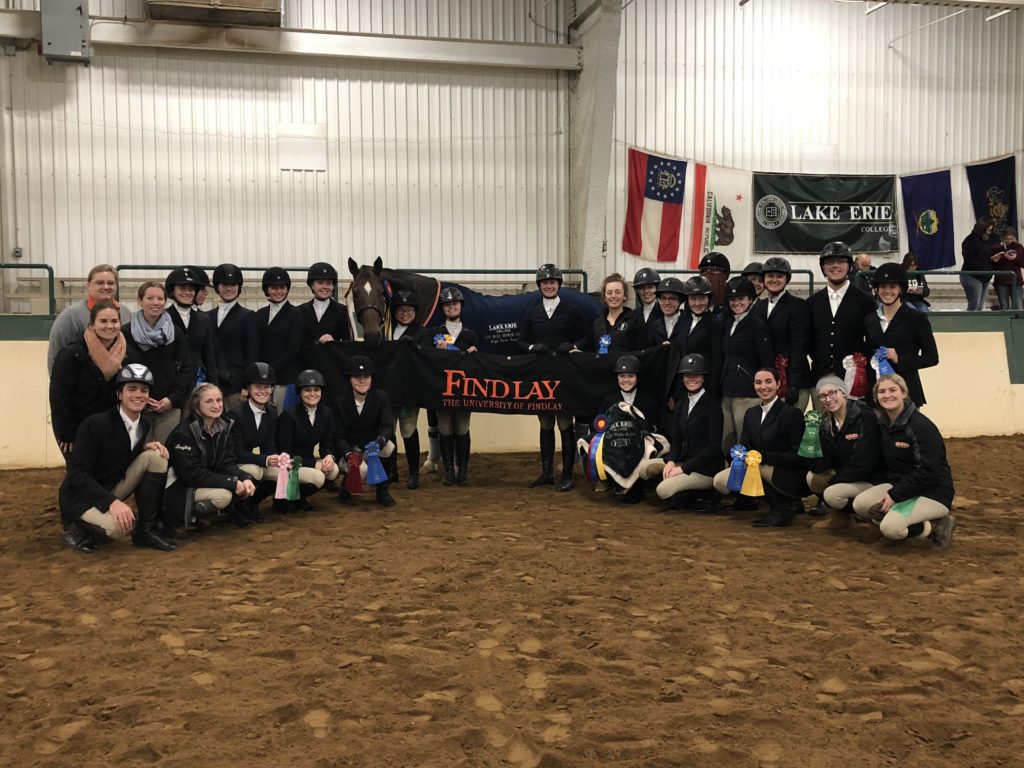
Q: What type of riding did you choose and why?
I grew up riding English because that was the only style taught at my first barn. In northern New Jersey, where I’m from, the hunter/jumper circuit is very big. I continued with English riding, as that was the specialty of a majority of the barns around me. I then got into showing equitation and hunters.
When I first started jumping I loved the freedom and rush of adrenaline.
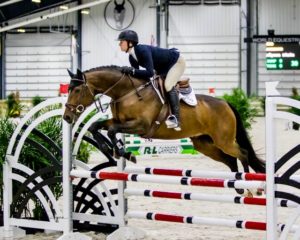 I also love perfecting my equitation, as it helps me ride a variety of horses better. When I came to college, as well as trying out for the IHSA hunt seat team, I also tried out for the Intercollegiate
I also love perfecting my equitation, as it helps me ride a variety of horses better. When I came to college, as well as trying out for the IHSA hunt seat team, I also tried out for the Intercollegiate
Though I’d never ridden
In college, I also got introduced to jumpers. Before, I mainly did equitation and hunters. I fell in love with jumpers because of a university-owned horse named Billy de Laubry. He was an ex-grand prix jumper who was great at his job. I got to take him to the World Equestrian Center my sophomore year and show in the 3’3 low adult jumpers for the first time.
I loved the thrill and speed, and Billy took me around as if he already knew the course. After that, I loved jumpers even more than hunters!
Q: What are some challenges of balancing academic and equestrian responsibilities?
No matter what degree you’re working toward, horses are time consuming. You learn to manage your time efficiently. Being a double major with a minor and being on the team does take up a lot of my time.
I had to really perfect my time management so I would be able to excel in both the classroom and the ring.
To add to that, I have an on-campus job which adds to my crazy schedule. I make schedules for the week and make sure to write all assignments and important meetings, practices, and work in my planner to keep me on track.
Having more than one degree and being on the team is very possible. Yes, it’s a lot of work and time, but if you put your mind to it, it’s possible. Personally, I’ve struggled with a lot of stress about getting everything done.
Surround yourself with good people to help you get through those really stressful times. There are also resources on any university/college campus that can help you with time management and organization. They are free to students, I’ve used them, and they are very helpful.
Use every resource possible so you can have time for all the horses!
Aside from the horses and school, make sure to schedule time for friends and doing things you like. Go see a movie, go get dinner, etc. Balancing a healthy social life now will only help set you up better for later in life, when you have to start juggling your job, family, and friends “for real!”
Q: What’s one “rookie mistake” you made?
One “rookie mistake” occurred several years into my riding journey. I got on a horse holding a longer crop in my right hand while mounting. I was getting on a new horse one day and, little did I know, the horse was super sensitive to whips and crops.
He saw that crop come over his back and bolted… so I just kept going up, over, and onto the ground. After that, I made sure to always mount with my crops and whips in my left hand resting on the horse’s shoulder.
You never know how the horse will react to the whips and crops, so it’s always a good idea to hold it in your left hand so you don’t accidentally spook the horse and end up on the ground like I did. I was in a clinic not too long ago with Jeff Cook, and he talked about how he likes to mount with it in his left hand too.
Good thing to keep in mind; it’s the little things you learn to pay attention to!
Q: What have horses taught you?
The biggest thing horses have taught me is dedication. I have spent many hours in the barn and in the saddle–and still have many more to spend.
There are days when I am frustrated, tired, or stressed, but I still get myself to the barn and get done what needs to get done. There are few things in this world that can teach someone immense responsibility and passion as working with horses.
The horses come first, so yeah–you might miss a social event or even a vacation for them. But, it’s worth every second. I have developed a deep connection with this sport, and I will never be able to stray from the world of horses.
I have put a lot of sweat, tears, and practice into what I do, like many of my fellow equestrians also have. I figured out that I don’t do this for the ribbons, the points, the fame, even if those are all nice.
At the end of the day, all my work, time, and dedication with these animals is a small price to pay–they do the impossible for me with just as much heart and effort. The dedication this sport has taught me will be a lesson I carry with me for the rest of my life.
Bottom line: Horses taught me to put my whole heart and effort into everything I do.
Q: If you could travel back in time to your first day on the team and give yourself one piece of advice, what would it be?
I would tell myself to have an open mind–and keep it open.
You learn so many new things on a college equestrian team. That knowledge may be different than what you grew up with, but that doesn’t mean it’s wrong. There are hundreds of ways to do things.
Try everything before making up your mind, and you may find something surprising clicks. The great thing about our sport is we never stop learning. Do not get stuck in one way of thinking; try different things. This is the time to experiment, make mistakes, and find out what works for you.
You will be able to achieve more and get more out of being on the team if you go into it with an open mind. If you draw a challenging horse at a show, don’t tell yourself it’s an impossible ride. Ask yourself, “How can I learn something from this horse that will make me a better rider?”
Every ride, every practice, and every time you’re at the barn is a learning opportunity–so take it!
Q: Why should students join a college equestrian team?
Not only should you join a college equestrian team because you get to ride, but because you get to make some pretty awesome friends. Growing up, I had my “school friends” and my “barn friends.” My school friends never understood the depth of how horse crazy I was, but my barn friends sure did.
Now, I’m at school and have friends who ride and share that same love. I like to tell my family, “I’ve found my people.” I get to be myself and have a bunch of friends who can relate to basically everything!
You also get to ride some pretty amazing horses with some pretty cool pasts! Sure, some of them are older retired show horses, but they still have so much to teach and offer. I love sitting on horses with such amazing show records.
Also, when you are competing for the team, it gives you a sense of worth and importance. You are not just competing for yourself, but for 30 teammates who all want to win. There is a strong sense of competitiveness and sportsmanship that cannot be explained unless you experience your first horse show with the team. We even have a raw competitiveness to still be the best and win classes even against our teammates.
You also gain a support system like no other, and we all push each other to be the best we can be.
Q: What’s one piece of gear you can’t live without?
It may sound cliché, but I can’t live without my helmet! I always wear it no matter what.
Even riding trail horses, I have to have it on my head. I had a very bad fall four years ago where I went head and neck first into the ground. Without my helmet my injuries would have been a lot worse. I owe a lot of “saves” to my helmet.
Also, two summers ago I saved up my money from a summer job with the intent of buying a new helmet. I purchased an amazing GPA Helmet, and it’s my baby and lives in a bag whenever it’s not on my head. I’m proud of how hard I worked to be able to purchase it.
GPA helmets are super comfortable, designed specifically for ladies, the gold standard of safety with more than 50 years of innovation behind every helmet. Mine does a great job protecting my head!
Q: Who is your favorite horse to ride and why?
My favorite horse is a university-owned horse named Andiamo, or Andi for short. I got assigned to ride him the beginning of my junior year. He’s dark bay with the cutest face and personality. He is a jumper that used to do 1.45 meter competitions.
Andi came into my life at a time where my confidence in riding was pretty low, and I was stressing about what I wanted in life from the equine industry. We clicked instantly. Everything came easily when riding him. He has a heart of gold and has jumped the moon for me, never putting a foot out of line. (Except he loves to play on the back side of jumps after a great effort!) He helped boost my confidence in every area of my riding and got me back to where I was before–and beyond.
That year, you never saw me without Andi, whether it was riding, in his stall, or just passing by to give him some mints. I even got to take Andi to WEC and compete in the jumpers!
He was a machine and did everything asked of him and more. Every time he walked out of that ring he had this swagger and carried himself like he just won the Gold Cup. We ended up champion in the 3’3 low adult jumpers, which was my first time winning a jumper division!
He helped me become more competitive and confident of my decisions. I cannot thank him enough for that. He really is something special and I am grateful I got to learn on such a kind, forgiving, and quirky teacher. He is one horse I will never forget.
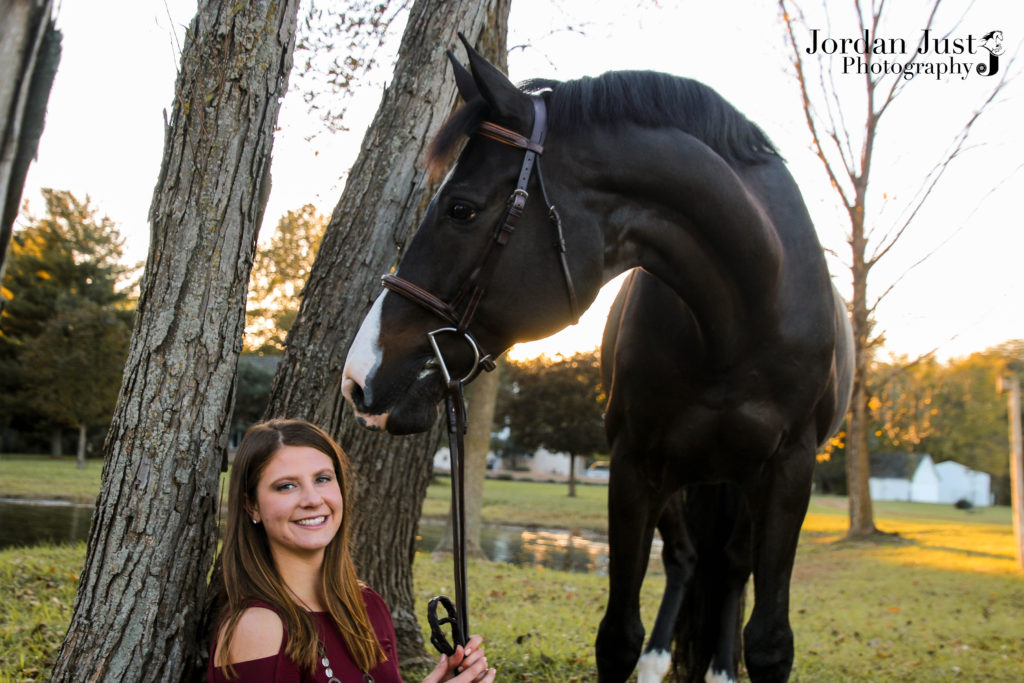
Enjoy this article? Trot on over to:
- Jumping Tips Beginners Can Put Into Practice Today
- 100+ Things to Pack for a Jumping Horse Show (Checklist)
- Horseback Riding in College: Tips from Alexi Neilsen
- See Why Findlay Made Our List of the Best Equestrian Colleges
- 10 Best Stirrups for Jumping Clear (and Staying Safe)
- Shelby Dennis: Best Horse Riding Advice & Rookie Mistakes
- Horseback Riding: What to Wear (With Pictures)
- Equestrian Media Guide (Vlogs & Podcasts)
2445
